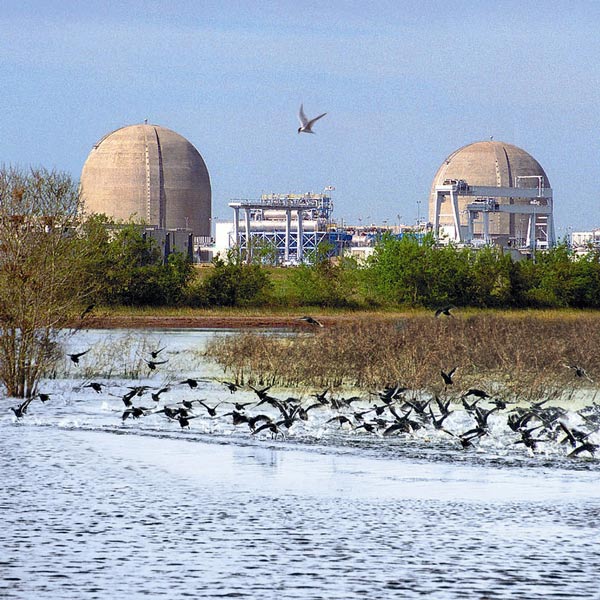By Jason Fordney
FERC on Monday approved settlement agreements among CAISO, Pacific Gas and Electric and Calpine covering reliability-must-run (RMR) contracts for three Northern California gas-fired plants, reducing the revenue they will receive and making them subject to a must-offer requirement.
FERC’s orders covered two proceedings, one for Calpine’s Metcalf plant (ER18-240) and another for the company’s Feather River and Yuba City plants (ER18-230). A FERC Administrative Law Judge last month recommended the commission approve the agreements. (See FERC ALJ Certifies Calpine RMR Settlements; PG&E, CAISO Protest Calpine RMR Terms.)
While the commission said the agreements resolved all issues in dispute in the proceedings and appeared to be “fair and reasonable and in the public interest,” the out-of-market RMR payments are not popular with many CAISO stakeholders and were opposed by the California Public Utilities Commission (CPUC) after the ISO’s Board of Governors reluctantly approved them in November. (See Board Decisions Highlight CAISO Market Problems.) The CPUC in January voted to require PG&E to hold solicitations to replace the agreements with energy storage. (See CPUC Retires Diablo Canyon, Replaces Calpine RMRs.)
The Metcalf settlement reduces the plant’s annual fixed revenue requirement from about $72 million to $43 million through 2020 if it retains its RMR status and makes the plant operator responsible for routine repairs and capital expenses. Under the agreement, the plant will recover $8 million in 2018 capital items in 12 installments of $675,000 beginning on Jan. 1, 2018. If the RMR agreement is extended, capital recovery would remain at about $8 million per year. The settlement also grants the plant $8 million in 2019 and 2020 if the revised agreement is not renewed and the unit shuts down.
The Feather River and Yuba City settlements would reduce each plant’s 2018 revenue to about $3.5 million from the previous $4.4 million, with a 2% hike for 2019 and 2020, if the RMRs are renewed.
The settlements would also take all three plants from Condition 2 (eligible for full cost-of-service payments) to Condition 1 (eligible for only a portion of their revenue requirement) status and impose a must-offer requirement, which the ISO’s Department of Market Monitoring has recommended for all RMR units. CAISO is working to revise its RMR program to establish a must-offer requirement for resources. (See CAISO, Stakeholders Debate RMR Revisions.)
CAISO Tariff Waivers
In a separate order, FERC also granted CAISO a limited Tariff waiver to permit nine scheduling coordinators (SCs) to submit out-of-time requests to recertify 18 resources for the 2018 resource adequacy compliance year (ER18-857). CAISO said the SCs had failed to renew an exemption related to its Resource Adequacy Availability Incentive Mechanism (RAAIM) program by the Nov. 15, 2017, deadline because of confusion about the recertification process for acquired resources within the program.
FERC said the waiver grants certainty to those resources that they their RAAIM exemption will not be unwound. CAISO replaced its Standard Capacity Product with RAAIM in November 2016. SCs must present an affidavit for each resource adequacy year testifying that each resource meets eligibility for exemption from certain performance incentives.
Energy Crisis Settlement
The Commission also approved an uncontested settlement filed Feb. 6 among CAISO, Wayzata Opportunities, PG&E, Southern California Edison and San Diego Gas and Electric related to the 2000/01 California energy crisis (EL02–18). The agreement ensures the payment of interest to the resource owners who had received delayed compensation for certain power supply contracts because of the default of the California Power Exchange. The filing parties said approval of the settlement would avoid further litigation, eliminate regulatory uncertainty and enhance financial certainty.





